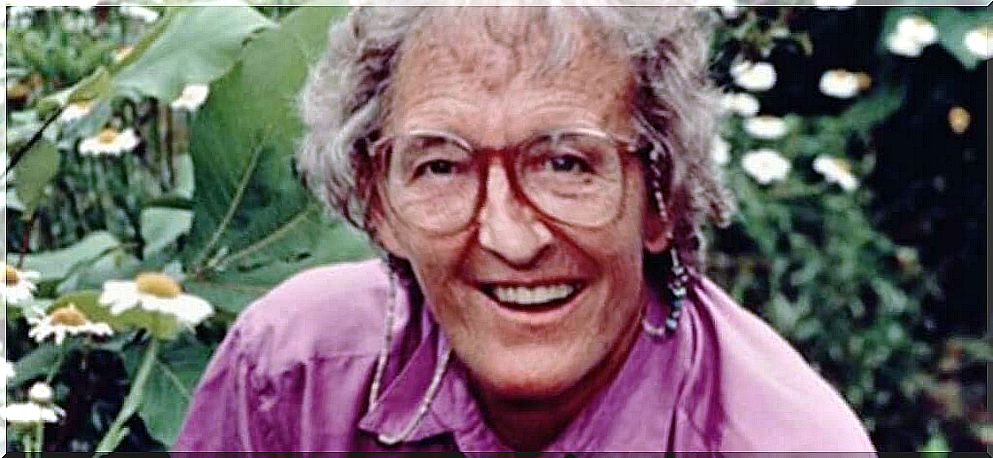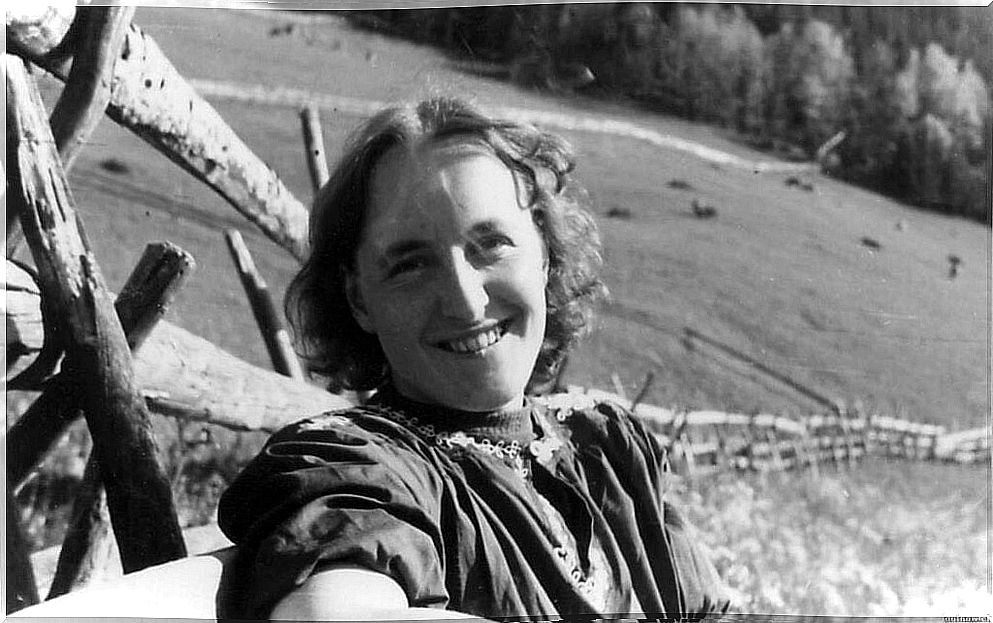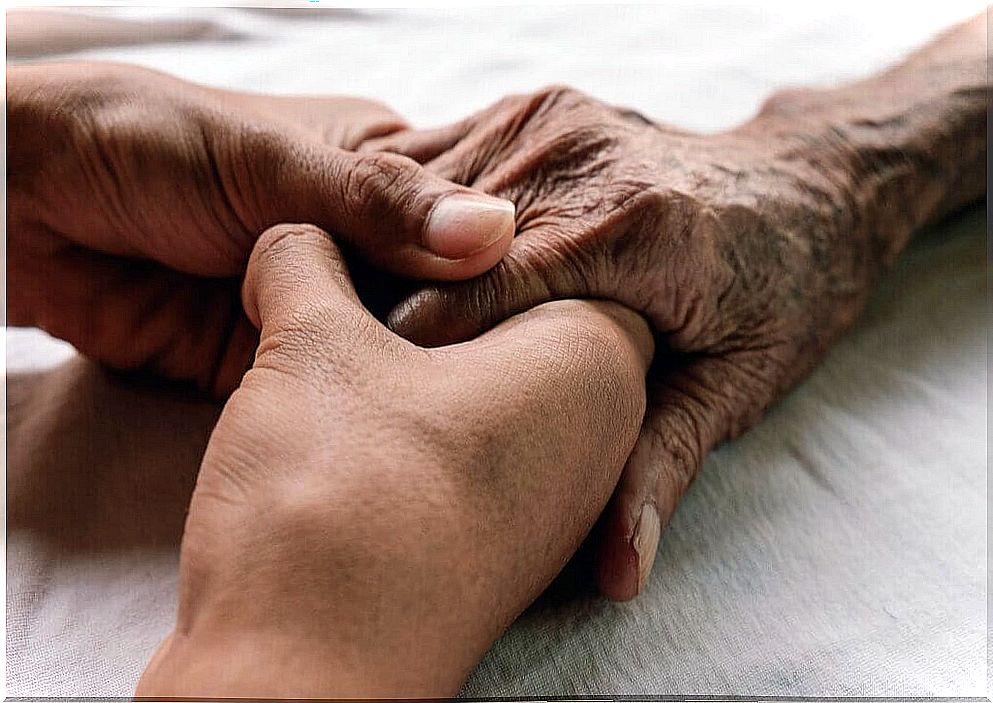Elisabeth Kübler-Ross: The Psychiatrist Who Taught Us About Death

Elisabeth Kübler-Ross was a psychiatrist who changed the way the West observed, treated and understood death. She humanized death and introduced palliative care to accompany terminal patients. He also taught us to face death with his famous theory about the phases of grief, and reminded us that this end, or the place to which everyone walks, is not so terrible. She left us an indisputable legacy that is still very present today.
Of Swiss origin, she received the title of Honoris Causa at 28 universities. In a documentary that showed much of her work, the world could see how Dr. Ross followed the last moments of dying people as well as children with terminal illnesses. Her sensitivity was absolute and the way she brought relief and even hope to those who went and stayed made history.
She started to be called “The mother of death”, but, in fact, she was the “Mother of life”. Because if there’s one thing she taught us, it was to understand that human loss is part of our existence. The secret is to make the most of each of our days, learning to give dignity to the moments in which people are in their process of changing their plan. A process that, according to the doctor herself, is full of love and light.

Elisabeth Kübler-Ross: the woman who traced her own career as a psychiatrist
“You can be a secretary or employee in someone’s house, but you’ll never do medicine” . That’s what Elisabeth Kübler-Ross’s father said when, just over 8 years old, she told him that her dream was to become a doctor. Elisabeth was born on July 8, 1926, in Zurich, and was the smallest and frailest of triplets, but that didn’t stop her from leaving home at 16 years old. Paternal resistance would put no barriers to her desires, and she went her own way in solitude.
She worked as a volunteer during World War II, helping in hospitals and taking care of refugees. After the war, he managed to obtain his medical degree from the University of Zurich and met an American doctor. She married him and soon moved to the United States, where Elisabeth specialized in psychiatry at the University of Colorado.
The need to give dignity to people on their deathbed
When psychiatrist Elisabeth Kübler-Ross arrived in the United States, she was impacted by the lack of psychological attention given to people with terminal illnesses, especially children. He also became aware of the lack of care and sensitivity towards the dying, people who were on their deathbed. It tried to change all that, and what it started there was a necessary revolution.
- It was a pioneer in establishing the modern foundations of palliative care. In his book “On death and dying”, from 1969, he presents the Kübler-Ross model, which would begin to be applied in several hospitals.
- She also introduced a new discipline at the University of Chicago in which she taught understanding of the dying process and the need to support people with terminal illnesses. In those classes, sick people, who had little time to live, were sought out to give their testimony.
Thanks to these classes, she established and defined the stages that a terminally ill person goes through: denial, anger, negotiation, depression and acceptance.
Caring for families and mourning the loss
In her career as a psychiatrist, Elisabeth Kübler-Ross has helped thousands of families. She did this by teaching them strategies to dignify the dying person on their deathbed and to deal with the loss once that person has passed away. The classic grief model facilitated the power to deal with the emotions that arise through these experiences.
Likewise, his work and inspiration favored the creation of several foundations to promote a dignified death. She even tried to create a hospital for children affected by AIDS, but because those were the first years of the epidemic, she found many criticisms and impediments to accomplishing this feat.
Dr. Kübler-Ross has written more than 20 books about death and has traveled the world sharing her knowledge in the “Life, Death and Transition” workshops. The income I derived from this was fully invested in organizing retreats to help people overcome their losses, deal with their illnesses, fears and anxieties related to the end of life.

Kübler-Ross: death as a dawn, a transport to another stage
One of his most controversial books was, without a doubt, “Death: a dawn”. Elisabeth had a very specific idea: death is simply passing into a new state of consciousness. It is to transcend into a state full of indescribable love and well-being, full of light. From there, according to the doctor’s view, a journey of spiritual growth begins.
This view was criticized by the scientific community. The truth is that their models of palliative care and coping with loss and illness were very well received and promoted. However, the aspect concerning the most intimate and spiritual view of what death was to her was not well received.
Despite this, there are many people who support this idea and who are comforted by this vision, this perspective. Its reassuring and hopeful lessons about death and life are no doubt very present today.









